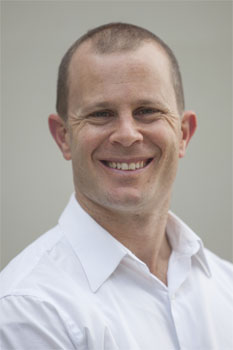Gad Krebs Creating Positive Relationships Interview

Is Your Relationship Dysfunctional?
Relationship expert and pschotherapist, Gad Krebs states: "It is not uncommon for every relationship, at some point in time, to struggle through dysfunction. The danger is the slippery slope from temporary dysfunction to permanent toxicity. This risk is exacerbated when a couple's communication is poor, common goals are unclear and respective roles misunderstood."
Relationships often start egocentrically
Each 'partner' looks expectantly at each other to fulfil their own needs. Even when they say "I love you", their intent is one of self-love; "I love how you make me feel", i.e. I love myself.
The relationship is elevated from self-serving to a genuine partnership
As the relationship develops, it can be elevated from a self-serving experience to a genuine partnership. The parties work together both for each other's benefit, but ultimately for the sake of the relationship. The behaviour of each individual becomes an investment in the partnership, which benefits the overall value of the partnership.
Dysfunction occurs when one or both parties lose focus on the partnership
They start looking at their personal needs and desires, ignoring the core needs of the relationship. When they feel that their needs are not being serviced, it leads to disappointment, anger and resentment.
In working towards a functional relationship clear communication is definitely critical, but not sufficient. At times the partnership needs a realignment of goals and values in addition to clear communication.
 Interview with Gad Krebs
Interview with Gad Krebs
Gad's prime focus is on promoting and facilitating positive relationships - relationships with oneself, one's family and within one's business and beyond.
https://gadkrebs.com.au/
Question: What inspired you to become a relationship expert/psychotherapist?
Gad Krebs: I have a deep desire to help people and groups through periods of conflict. Some suffer unnecessarily, due to a lack of insight as to how their behaviour affects others.
Question: What types of signs will we see if we are in a dysfunctional romantic relationship?
Gad Krebs: Signs of dysfunction:
You keep a tally of everything 'you've done'. This list of then referenced as proof during the next argument. It becomes a competition of who has 'done" more.
You consider yourself a martyr. Every deed you do is a sacrifice on the altar of self-righteousness. "I guess I'll have to do it".
You expect your partner to know what you've done without explicitly telling them
You expect your partner to know how you feel without explicitly telling them
You retain an unrealistic optimism that perhaps today your partner will spontaneously be different
You resent your partner for not appreciating all of the above
Question: How can we ensure we are facilitating positive relationships?
Gad Krebs: First and foremost is the key to not expect relationships to happen by themselves. Every relationship needs hard work from both parties, it is never one-sided. If you feel you are stuck in conflict, whether it be something specific or something more endemic- be prepared to reach out for help from a therapist.
Question: Why is communication the most important factor in all our relationships?
Gad Krebs: The most important aspect of communication is to feel understood. Each partner needs to learn how to understand the other. Active listening is a crucial skill in allow others to feel heard. Communication is a means to connection. We always feel more connected to those we feel understand us, so communicating through listening allows our partners to connect to us.
Question: How can we practice our communication skills?
Gad Krebs: Learn how to listen. We were given two ears and one mouth; so that we can listen twice as much as we speak.
Question: What are the common problems you see in couples?
Gad Krebs: Probably the issue of not feeling appreciated. Often it is a case of not feeling understood or acknowledged, but it manifests itself in resentment.
Question: What's a typical day like, for you?
Interview by Brooke Hunter
MORE



